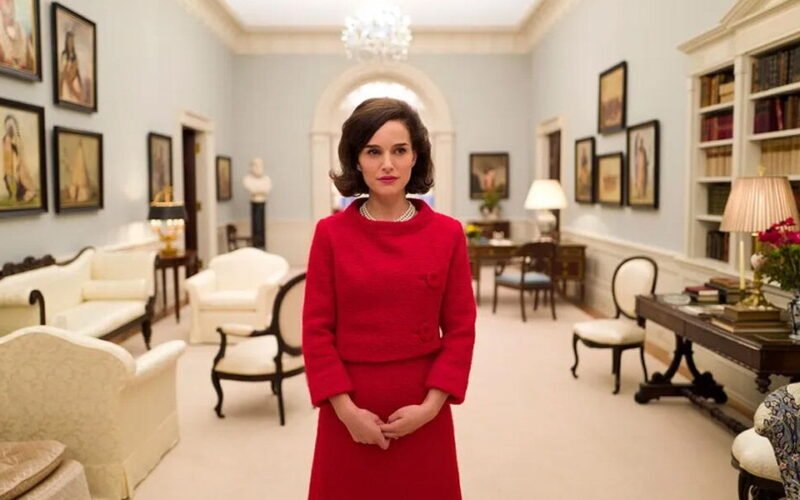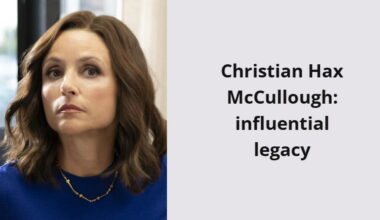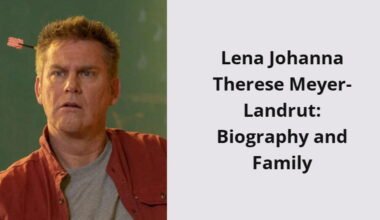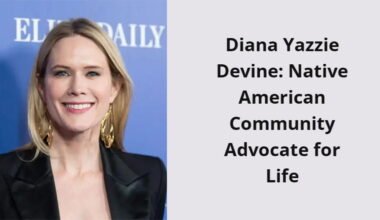Key Points
- Wall Street luminary John Vernou Bouvier Jr. was a successful Wall Street lawyer and stockbroker who left a legacy.
- Educational Excellence: The Columbia University graduate excelled academically and served as class president, establishing the groundwork for his illustrious career.
- Military Service: Bouvier was a Major in the Judge Advocate General’s Department during World War I, demonstrating his public service.
- As the father of a family that included First Lady Jacqueline Kennedy Onassis and other famous personalities, his effect on American political and social history is significant.
- Financial Ups and Downs: Bouvier’s career saw financial successes and hardships, including the 1929 crisis, which challenged his and his family’s perseverance.
- Contemporary Reverberations: Recent family disagreements, especially those involving Caroline Kennedy and RFK Jr., show how the Bouvier-Kennedy dynasty continues to influence politics.
Early Life and Education
Born in Torresdale, Philadelphia, on August 12, 1866, John Vernou Bouvier Jr. came from a wealthy and historical family. American Captain John Vernou Bouvier was his father. Civil War soldier and early New York Stock Exchange member, demonstrating the family’s financial competence and pioneering zeal. His mother, Caroline Maslin (née Ewing) Bouvier, strengthened a successful family. Early influences helped Bouvier Jr. achieve brilliance.
Bouvier Jr. was raised to prioritize education and civic duty. His class presidency at Columbia University showed his leadership skills. Graduated with A.B. He earned an A.M. in 1886 to improve his intellectual skills. in 1887 from the Graduate School of Arts and Sciences, then an LL.B. 1889 Columbia Law School graduate. This extensive education prepared him for a brilliant career in law and business and solidified his position in American upper-class society.
Professional and Financial Effect
Legal and Financial Expertise
John Vernou Bouvier Jr. began his career after being admitted to the New York bar in 1888. He began his career at Hoadley, Lauterbach & Johnson, where he refined his legal skills during a time of tremendous financial change. Bouvier focused on contracts, testamentary law, torts, securities, and stock exchanges. His legal expertise made him a trusted counselor and champion in New York City’s sophisticated finance industry.
As a Major in the Judge Advocate General’s Department during World War I, Bouvier’s career took off. This post showed his versatility and dedication to public service and his ability to manage law and military government.
Bouvier became a partner in Bouvier & Beale, a firm at 165 Broadway in New York’s financial center, after his military duty. He represented major firms including Aetna Life, Travelers, Equitable Life, and the Metropolitan Street Railway Co. for almost four decades as a trial attorney. His expertise in securities and stock exchanges put him at the forefront of legal and financial issues.
Financial Successes and Failures
Bouvier struggled financially despite his achievements. Bouvier inherited $250,000 from his family, which was worth $4.58 million today. The 1929 Wall Street crisis cut half his wealth. This financial slump showed finance’s unpredictability. However, it showed Bouvier and his family’s tenacity.
Unlike him, his uncle saved $7,000,000 (approximately $128.18 million today) before the catastrophe. This contrast of wealth and catastrophe within the same family shows the perils of financial speculation and Bouvier Jr. and his family’s history of financial caution and strategic insight.
Family, Personal, and Home
Dynastic Pillars
John Vernou Bouvier Jr.’s personal life was as active as his job. He married Maude Frances Sergeant in 1890 and started a family that would change American history. The marriage had five children, including famous individuals John Vernou Bouvier III and Edith Ewing Bouvier Beale. Bouvier’s legacy lives on via his descendants, including First Lady Jacqueline Kennedy Onassis and socialite Lee Radziwill.
Living Elegantly: Homes and Social Status
The Bouvier family lived in some of the most luxurious homes of their period. The 1895 Woodcroft mansion in Nutley, New Jersey, was famous. This land and their New York City mansion at 521 Park Avenue showed the family’s wealth and status. The family owned East Hampton homes such Wildmoor on Apaquogue Road near Georgica Pond and Lasata, which Maude Frances Sergeant bought in 1925. Lasata, completed in 1917, symbolized the family’s status and ties to East Hampton’s aristocracy.
Bouvier and his successors’ magnificent houses symbolized their social and economic success. They strengthened their aristocratic stature by joining elite clubs like the Union Club of New York and the Maidstone Club in East Hampton.
A Biographical Table
| Category | Details |
|---|---|
| Full Name | John Vernou Bouvier Jr. |
| Birth | August 12, 1866, Torresdale, Philadelphia, Pennsylvania, U.S. |
| Death | January 15, 1948, New York City, New York, U.S. |
| Resting Place | Most Holy Trinity Catholic Cemetery, East Hampton |
| Education | – A.B. from Columbia University (1886, Class President) – A.M. from Columbia Graduate School (1887) – LL.B. from Columbia Law School (1889) |
| Occupation | Lawyer, Banker, Stockbroker |
| Career Highlights | – Admitted to New York bar in 1888 – Served as Major in WWI – Partner at Bouvier & Beale – Trial attorney for 40 years, specializing in multiple legal domains |
| Financial Impact | Inherited $250,000; lost half in 1929 crash; uncle preserved $7,000,000 |
| Family | Married to Maude Frances Sergeant; father to five children, including John Vernou Bouvier III and Edith Ewing Bouvier Beale; grandfather to Jacqueline Kennedy Onassis and Lee Radziwill |
| Residences | Woodcroft Estate (Nutley, NJ), 521 Park Avenue (NYC), Wildmoor (East Hampton), Lasata (East Hampton) |
| Memberships | – Maryland Society of Cincinnati – Sons of the Revolution – Military Order of the Loyal Legion – Union Club of New York – Maidstone Club (East Hampton) |
| Boards | – New York Foundling Hospital – New-York Historical Society |
Lasting Impact
John Vernou Bouvier Jr. contributed beyond his career. His legal and financial efforts shaped American finance throughout fast expansion and change. His family has produced influential personalities in American political, cultural, and social history.
Bouvier-Kennedy Relationship
Bouvier’s Kennedy family link may be his greatest legacy. His grandson, John Vernou Bouvier III, fathered Jacqueline Kennedy Onassis, who revolutionized the First Lady’s role with grace, flair, and public duty. Jacqueline’s popularity during John F. Kennedy’s administration made Bouvier synonymous with American elegance and leadership. This linkage links historical significance to present political and cultural relevance, preserving the family’s power.
American Society Contributions
Bouvier was successful and dedicated to public service throughout his life. Participating in famous groups like the Sons of the Revolution and the Union Club of New York shows his commitment to civic responsibility and cultural preservation. His participation on New York Foundling Hospital and New-York Historical Society boards is a testament to his community and cultural involvement.
Modern family dynamics and developments
John Vernou Bouvier Jr.’s descendants carry on his legacy decades after his 1948 death. Recent months have seen the Bouvier-Kennedy family in the news again. On January 28, 2025, Caroline Kennedy, daughter of Jacqueline Kennedy Onassis and former U.S. ambassador, publicly criticized her cousin, Robert F. Kennedy Jr., over his nomination as Secretary of Health and Human Services.
Caroline Kennedy’s harsh statements, calling RFK Jr. a “predator” and doubting his credentials based on his vaccination beliefs, sparked heated controversy. She raised issues including vaccination skepticism, disinformation, and personal tales. This public conflict has highlighted family relationships and historical legacies in current politics.
Family Reactions and Beyond
The Kennedy-Bouvier feud shows that even famous families have internal conflicts. With famous personalities on all sides, these recent debates illustrate America’s shifting political and social conversation. The legacy of John Vernou Bouvier Jr.—resilience, public service, and a genuine dedication to family and duty—continues to inform these arguments.
Recently, Caroline Kennedy’s views have aroused conversations in social and political circles, showing how one family member’s actions and words may conjure a late 19th-century legacy. These conversations show Bouvier’s timeless contributions as historical accomplishments and continuing traditions that impact public life.
Legacy of History and Modernity
Personal desire, professional accomplishment, and public duty may leave a legacy, as John Vernou Bouvier Jr. demonstrated. His legal and financial success laid the groundwork for a dynasty that shaped American history. He left a legacy of academic achievement, military service, and financial savvy to his successors, who have continued it in public spaces.
His professional struggles, such as the 1929 catastrophe, teach us about financial market volatility and resilience. In contrast, his military service and civic and cultural involvement show a balanced existence that emphasized personal success and public good.
His life is a story of the American Dream—education, hard effort, and adaptability and success despite hardship. His rise from a bright Columbia University graduate to a renowned figure in Wall Street and the legal community inspires his direct descendants and everyone interested in the complex relationship between personal legacy and national history.
FAQ
What was John Vernou Bouvier Jr.’s main job?
Wall Street lawyer and stockbroker John Vernou Bouvier Jr. shaped the legal and financial environment of his period.
What role did schooling have in his career?
Bouvier’s successful career in law, finance, and public service was built on his successes at Columbia University, where he obtained degrees in arts and law.
What part did he play in WWI?
He was a Major in the Judge Advocate General’s Department during World War I, demonstrating his public service and military government legal skills.
How did 1929 Wall Street catastrophe influence him?
After inheriting $250,000, Bouvier lost half of it during the 1929 crisis, highlighting the perils of banking.
How is his legacy related to Kennedy?
Bouvier’s grandson John Vernou Bouvier III and granddaughter Jacqueline Kennedy Onassis have continued the Kennedy family’s involvement in American public life.
What recent family news highlighted his legacy?
Caroline Kennedy’s recent criticism of her cousin Robert F. Kennedy Jr.’s government candidacy has revived interest in the Bouvier-Kennedy family relations and highlighted John Vernou Bouvier Jr.’s legacy.
His family’s major traits?
The family lived in the Woodcroft mansion in Nutley, New Jersey; 521 Park Avenue in New York City; and Wildmoor and Lasata in East Hampton, reflecting their social and economic status.






